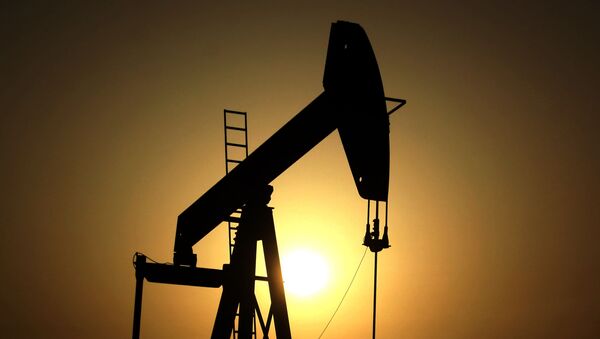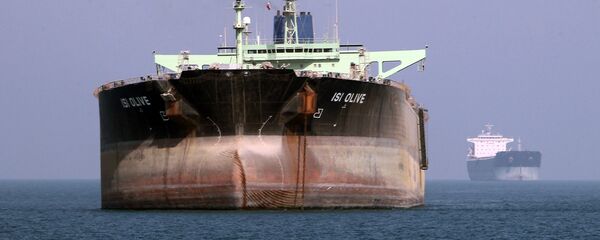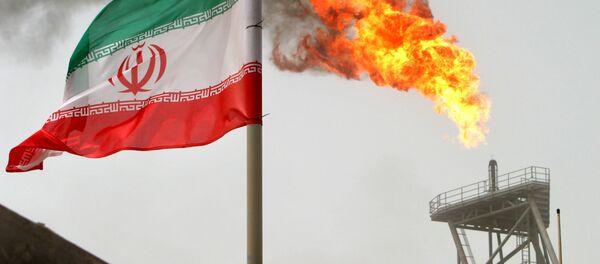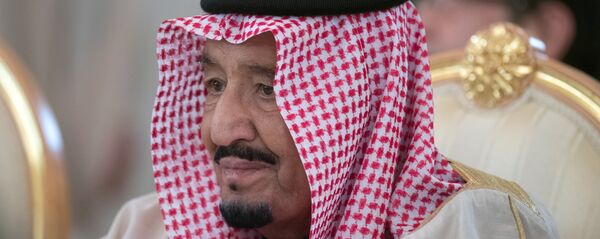Radio Sputnik discussed this with Sami Hamdi, editor-in-chief of the International Interest and geopolitical risk consultant.
Sputnik: In your view, what are the chances that Iran will go ahead with the threat and block shipments?
Sami Hamdi: I think we have to be aware that Iran is well-known for making threats and not going through them. Let’s remember the threat they were making when Trump was threatening to leave the nuclear deal, they said they would do so and so. And then when Trump left the nuclear deal they said instead that they would wait and see what their European allies would decide and they would engage in discussions. Moreover, I don’t think Iran is at a state where it needs to implement such drastic measures.
READ MORE: Please Stop This: Iran’s OPEC Chief Says Trump’s Tweets Raise Oil Price by $10
Remember, Iran still has many allies, particularly with regard to its oil exportation; particularly amongst OPEC allies, who are very upset at Trump’s pressure to increase production to bring down the oil price. It also has EU allies, who are more than happy to see Trump feel the pinch of high oil prices so that he can suffer for the tariffs that he has imposed on the EU. Remember that one of the reasons that a lot of these countries are in crises or one of the reasons that we’re seeing economic diversification, indeed one of the reasons why we see OPEC countries like Venezuela in economic and political turmoil is because of low oil process that were caused by the shale oil industry. In other words, Trump’s pressure on OPEC nations is not being warmly received. In fact, the only two OPEC nations who are pushing for the increase in production are Saudi Arabia and the UAE.
Sputnik: What would be the impact of it happening, if it were to happen?
Sami Hamdi: I think it would have far-reaching consequences; the effects would not just be felt in the Gulf countries, but even in China and India and other places; because if Iran was to cut off the exports of oil, it would have to do so to the Hormuz Strait. And the Hormuz Strait is part of a wider shipping network that includes LNG [Liquefied Natural Gas] gas; it is such an important shipping route. So in other words, Iran wouldn’t just upset the US, indeed it would not just make the Gulf countries suffer, but it would also upset its loyal customers such as China and India.
Sputnik: How would Iran go about doing this technically?
Sami Hamdi: Iran would go about doing it by sending troops in order to block the Hormuz Strait. Of course, don’t forget that the US has a fleet there. Iran also has proxies across the Middle East that can damage production of oil, whether it’s militias in Iraq, whether it’s militias in Syria, whether it’s Hezbollah in Lebanon, all these other different proxies that are able to damage oil production. The problem with the Iranians is that to do such a move would provoke a war, a war in which it’s not certain that it can win. Moreover, it would be a war in which it would not be certain that it has enough allies to withstand the public outrage and public anger at such a move. However, as I said earlier, it’s important to stress, Iran still has many cards to play; it doesn’t need to proceed with this move.
Sputnik: Iran’s OPEC governor claimed that Trump was attempting to stir Iran-Saudi tensions. Do you believe that this is the case?
Sami Hamdi: I don’t think Trump thinks that deeply about the issues. I think with regard to Trump, it’s a very knee-jerk reaction, I don’t think he foresaw the impact of high oil prices and I think the nature in which he has tweeted shows that he didn’t plan this in his strategy. I think with regard to the Iran deal, it had nothing to do with oil and more to do with: one, a hatred of Obama and two, the fact that he thinks himself a better deal-maker and wants to be seen as making a change. I don’t think there’s any serious policy concern here.
READ MORE: Iran Urges OPEC Not to Boost Oil Output Amid Alleged Saudi Deal With Trump
I think with Iran he wants a new nuclear deal that he can claim credit for before he goes to war. I don’t think we can exacerbate tensions between Saudi Arabia and Iran further than they already are; they already have the worst relations. So I don’t think that Trump has thought that deeply, I think Trump’s first and main concern is the rising of fuel prices in the US that would affect his electorate. Trump does not see long-term, he only sees short-term and I think it’s reflected in the attitude and in his statements. So I don’t think this is part of a big wider policy to stir up discontent between Saudi Arabia and Iran.
Sputnik: Trump has also been invited to take part in the upcoming talks on the Iranian deal in Vienna. Do you think he will actually accept that invitation?
Sami Hamdi: To be honest, that’s a good question. I’m not particularly certain. The point in favor of him not going would be that he doesn’t want to be seen as strong along by the EU. He’s pretty defined with regard to the Iran deal. If the new Iran deal is going to be negotiated, it would be done by a proxy. In other words, I don’t think that Trump and the Iranians will meet; I think it would be the EU negotiating on behalf of the US. I think if Trump feels the increased economic strain, he may be forced to negotiate with Iran over a new nuclear deal. Will he accept the invitation? It depends on how seriously he wants to heal some of the tensions with the EU.
The views and opinions expressed in this article are solely those of the author and do not necessarily reflect those of Sputnik.







